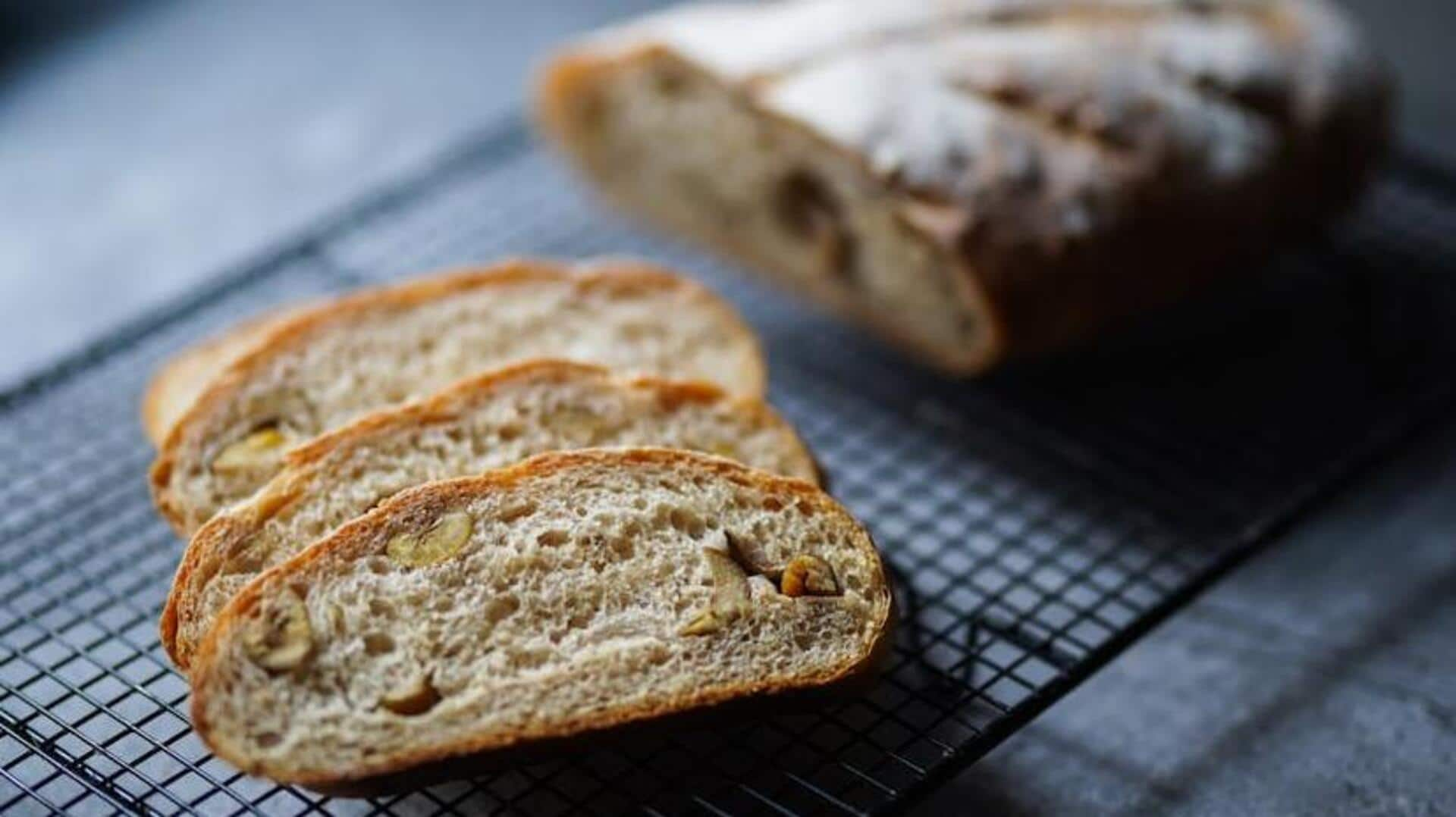
5 lip-smacking fermented starters you must try
What's the story
Fermentation is a fascinating process that transforms plain vegetarian ingredients into complex, flavorful wonders. If you prefer vegetarian options, here are a few fermentation starters that can be used to make tangy and tasty foods. They not only enhance the flavor but also make the food nutritious. Let's explore five must-have vegetarian fermentation starters that can easily find a place in your kitchen.
Sourdough
Sourdough starter for bread lovers
Sourdough starter is a classic pick for bread lovers wanting a hint of tang in their loaves. Prepared from nothing but flour and water, this starter uses wild yeast and bacteria available in the air to ferment. The outcome is a naturally leavened bread with an unmistakable sour flavor and chewy texture. Sourdough starters need to be fed regularly with equal parts of flour and water, so they become a kitchen companion for good.
Kombucha
Kombucha SCOBY for fizzy drinks
Kombucha SCOBY (Symbiotic Culture Of Bacteria and Yeast) is the key to brewing the tea at home. This gelatinous mass ferments sweetened tea into a fizzy, slightly tart drink loaded with probiotics. To brew kombucha, you need a healthy SCOBY, along with some starter liquid from a previous batch or store-bought kombucha. The fermentation process usually takes about one to two weeks, depending on temperature and taste.
Tempeh
Tempeh starter for protein-rich foods
Tempeh starter culture ferments soybeans into tempeh—a protein-rich alternative that's a staple in vegetarian diets. The culture has spores of Rhizopus mold that bind the beans together during fermentation while giving an earthy flavor profile characteristic of the tempeh itself. To prepare tempeh, soybeans are cooked before inoculating them with the starter culture. They are then incubated at warm temperatures until fully fermented.
Miso paste
Miso paste starter for savory dishes
paste acts as an ingredient in multiple dishes as well as its own fermentation starter when preparing homemade paste from scratch using soybeans or other legumes blended with rice mold spores (). The versatile condiment adds umami depth when used sparingly across soups, marinades, dressings, etc., while offering beneficial enzymes aiding digestion due its lengthy aging process ranging anywhere between several months up till years depending on the type desired.
Sauerkraut
Sauerkraut brine for pickled vegetables
Sauerkraut brine acts as a preservation medium and a great starter for pickling carrots, radishes, cucumbers, etc. This lacto-fermentation method uses a saltwater solution to promote the growth of lactic acid bacteria on the surfaces naturally. It generates the tanginess characteristic of fermented foods, so you don't have to worry about adding cultures, apart from the first batch of sauerkraut. Now, you'll never run out of probiotic-rich condiments!